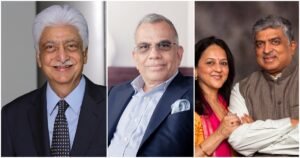India’s youngest billionaire and Zerodha co-founder, Nikhil Kamath, shared a rather unconventional opinion on a tradition established since humans’ inception on his podcast WTF’s recent episode.
What did he opine on?
Regarding his perspective on parenthood, Kamath said he strongly believes in not having children.
He does not believe in spending twenty years of his life “babysitting” and only hopes his children will treat him well when he gets old.
Kamath said, “I’m going to ruin 18-20 years of my life babysitting this child and then if luck serves me right, the reverse will happen at some point. What if he says ‘scr** you’ at 18 and leaves anyway.”
He further shared that having children to continue his “legacy” doesn’t align with his values.
He believes that he is under no obligation to adhere to traditional norms and prioritises his current pursuits rather than focusing on having children so that he can be “remembered”.
“I think we all feel that we are more important than we actually are… you are born, and you die like every other animal on the planet, and then you are gone, and nobody remembers anybody,” he said.
“What’s the point in being remembered (after death)? I feel like you should come, you should live well, you should be nice to the people you meet in your life,” he added.
Kamath, on his wealth
He doesn’t believe in storing money in a bank to save for his future generation; rather, he opines that it should be used for the purpose/causes he resonates with.
Last year, he signed The Giving Pledge, making him the youngest Indian billionaire to do so. The Giving Pledge is a prestigious initiative where philanthropists pledge most of their wealth to charitable causes.
Nandan Nilekani, Kiran Mazumdar-Shaw, and Azim Premji are the other three Indian signatories and are regarded as an inspiration for Kamath’s philanthropic journey.
He said, “I think everybody should realise the importance and understand the concept

of mortality… I am 37 and if the average lifespan of an Indian is 72 years old, I have 35 years left. So rather than leaving the money I have earned in the last 20 years and what I would earn in the next 20 years to a bank or institution like that… I would rather make the most of it.”










